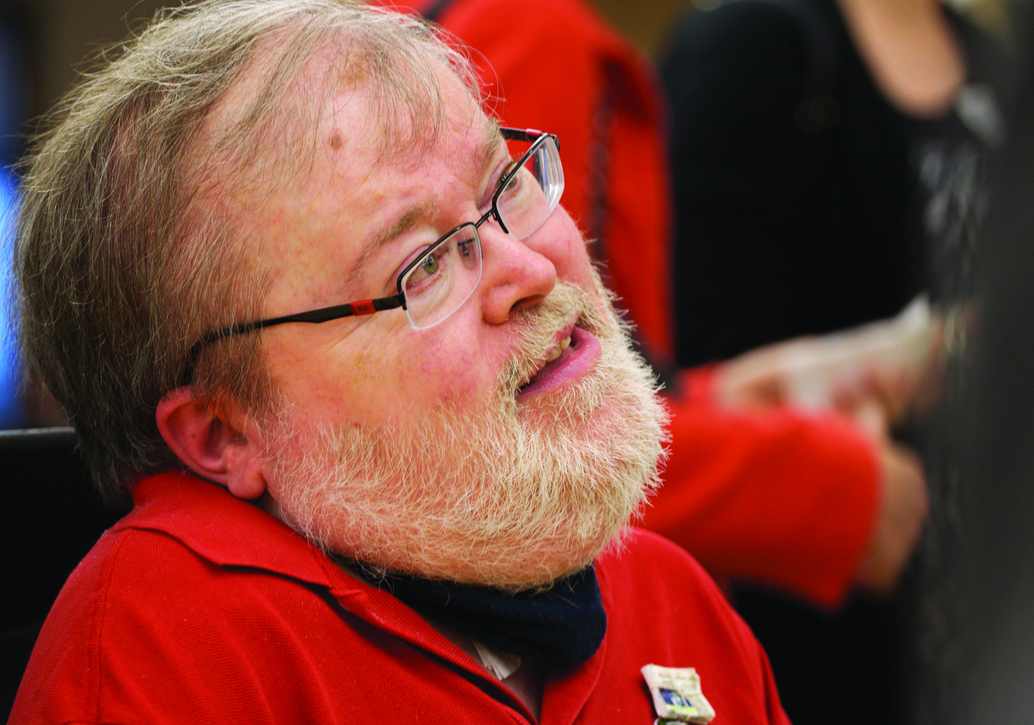Introducing our first Hang Your Heads in Shame Awards: COVID-19 edition
By Stephen Trumper
My intention after leaving hospital last winter following two months of purging the infections of quadruple pneumonia, including several weeks on a ventilator, was to rest, relax and reflect on life.
For a month I had the good fortune to accomplish all these goals. I took a medical leave from teaching. I became a serial napper. And, because I have a disability and am at an advanced age, I thought a lot about how far we’ve come since the days when most of us would have been shut-away into sheltered institutions.
Our advances since then were brought home by the Netflix documentary, Crip Camp, a compelling chronicle of the birth of the disability-rights movement and the rise of independent living. It also portrayed the beginning of the unique ways people with disabilities embraced political action. All their efforts have in no small measure enlarged the definition of what it means to be human. Increasingly, people with disabilities have built lives that just would not have been possible a few generations ago.
But with these hard-fought-for gains have come worries about whether they can be sustained. Is it possible, many of us have asked, that they could be threatened when more urgent priorities swoop in? We are now seeing this happen with the arrival of COVID-19. A careful study of newspapers, broadcast and other forms of media have revealed some disquieting developments.
I don’t want to take away from any of the outstanding work by medical professionals and other people giving so much of them- selves to keep the population as safe and sound as possible. Still, COVID- 19 has been with us long enough that, in addition to the heroics, we have witnessed hypocrisy, questionable judgments and thoughtlessness about protecting people with disabilities, as well as seniors.
In this spirit, let’s focus on some of the growing concerns that have been bothering those of us in the disability community with this: Abilities first Hang Your Heads In Shame Awards:
1. To all Canadians who have ignored the needs of people with disabilities or seniors in long–term care or congregant settings. As former federal minister of health, Jane Philpott, said on the deaths of six residents with disabilities at Participation House in Markham, Ont., “They’re places that society doesn’t pay a lot of attention to, either wilfully or because no one’s raised it to their attention.”
2. To all political leaders with responsibilities for long-term-care facilities who were shocked, just shocked, after the armed forces reported on what they saw in nursing homes. Really? They only discovered this sad state of affairs now? All they had to do was ask almost any family member watch- ing over their parent or spouse about the sometimes cruel or inhumane care made available to their loved ones. These complaints, also coming from health–care workers and others, should have been acted on decades ago.
3. To all those people ultimately responsible for ensuring Canada was fully prepared for a pandemic. What happened? Where were the extra ventilators? Why were adequate supplies of personal protection equipment not provided, the lack thereof putting healthcare workers and those of us with disabilities and/or underlying conditions at greater risk?
4. To all framers of Emergency Triage Protocols. As activists point out: “Discriminatory triaging means a person with a disability can be denied lifesaving healthcare based on their disability.” I am haunted by this unsettling scenario: What if my quadruple pneumonia had come during peak– COVID? Would there have been a ventilator available for me? If I had the same three near–death incidents as I did in February would rushed doctors even have the time to rescue me?
5. To hospital administrators who have banned people with disabilities from bringing in our own PSWs or family members to provide essential assistance. Hospital people generally insist they can handle our complex needs. They never could, and it is cruel and discriminatory, say activists, to deny us help from the people who often know more about our needs than hospital staff, and often are the only ones who can interpret our communications. I shudder at the thought of a long–term hospital stay without my support network. I doubt I’d survive.
Stephen Trumper serves on the board of the Canadian Abilities Foundation. He is an independent writer, editor and journalism instructor at Ryerson University.














